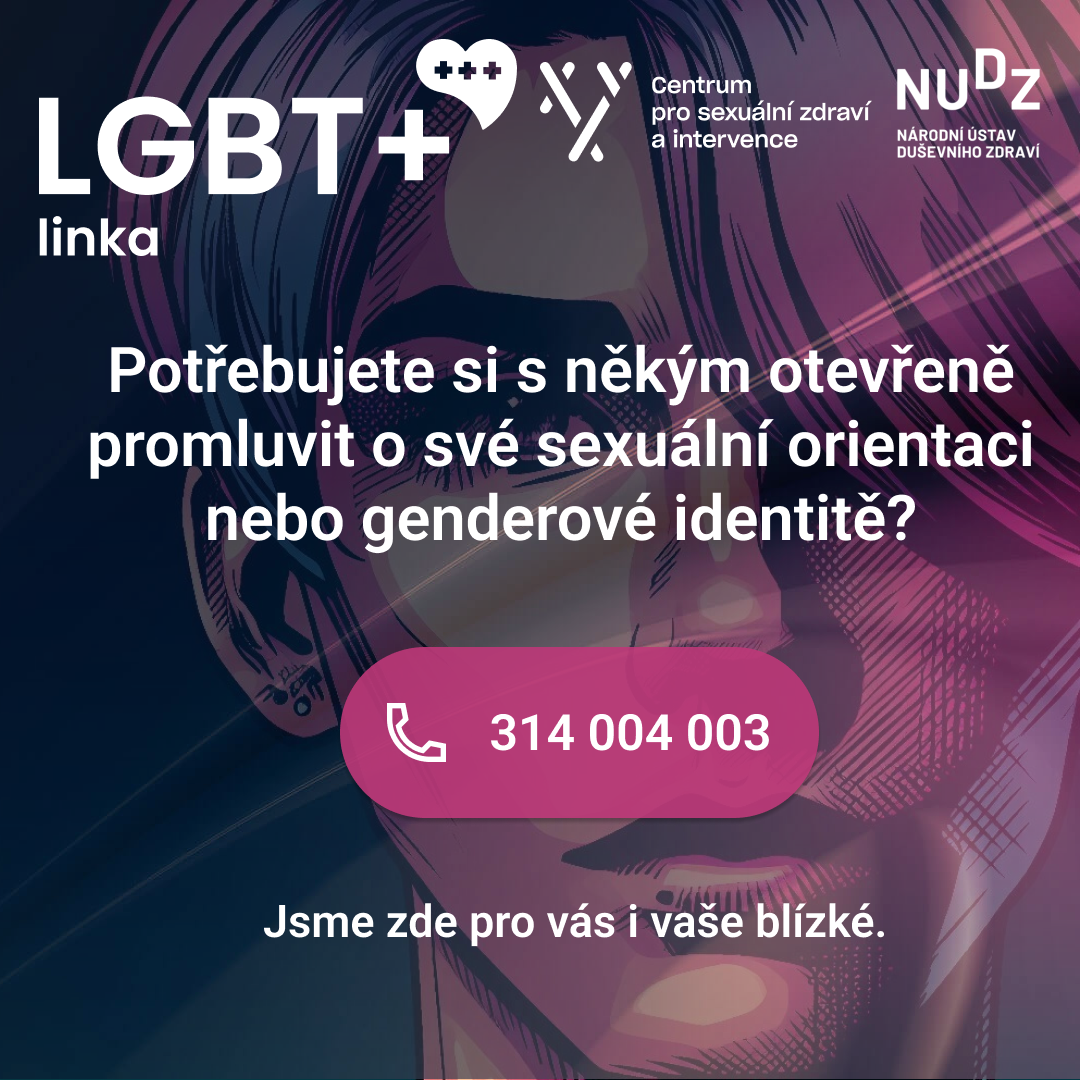Wednesday June 7th 2023, 16:00 | 🇨🇿 Registration
CO.LABS – chatička | registration required
Do you provide a social or similar service and meet or may meet LGBT+ people? Is it important for you to support the authenticity of your clients and provide them with a quality service appropriate to their needs? In this workshop, we will show you in an experiential way why it is important to address this topic and to be open and respectful. You will receive practical guidance on how to implement culturally competent care towards LGBT+ people in your service, with this approach promoting respect for diversity and vulnerability overall amongst staff and clients. We will share with you our experiences of implementing this approach in a halfway house service and answer any questions you may have.
On the face of it, we seem to be a tolerant enough society, used to LGBT+ people. However, probably every one of us knows someone who is gay or lesbian and has at least heard of a transgender person. Yet we often hear sentences like "Why should they have a march? Let them express themselves in private." We ask - if it were so common and okay for someone to be LGBT+, would we even need to address who they like and whether they express that in public? According to the Ombudsman's 2019 research, 86% of transgender people, 58% of lesbians and 33% of gay people felt discriminated against in 2018. (https://www.ochrance.cz/uploads-import/DISKRIMINACE/Vyzkum/Vyzkum-LGBT.pdf) For people who are very likely to have experienced prejudicial violence because of their sexual orientation or gender identity, it is a mistake to assume that they will just open up and be themselves in a social service or similar organization. It is not enough that we have it in our methodology that we provide a service to people regardless of age, political beliefs, skin colour, or sexual orientation. However, this is exactly what we were saying to ourselves when we were considering with the SOS Kotva halfway house whether we would even enter into the Piloting Criteria for a Fair and Inclusive Service for LGBT+ Clients under the Ministry of Labour and Social Affairs. It seemed to us quite obvious that we are there for everyone who falls into our target group, and we thought that the clients know that they can tell us anything. But it was only after we started openly declaring this and mentioning coming out as one of the possible topics of cooperation that clients started to openly share this with us as well. We were concerned that LGBT+ people might experience bullying from other clients in our service. This has not happened because we have worked with all the clients of the service, guiding them to be sensitive to the needs of others and to tolerate that someone is different from them, and reiterating that we do not tolerate any form of violence in our service and that we are totally accepting of everyone, regardless of their difference. For example, when we had a transgender client, with his consent, we would talk to others about why we were suddenly calling him by a different name and in the masculine gender and so on. We were surprised at how tolerant and supportive the male and female clients subsequently became towards each other. Not only in terms of sexual orientation and gender identity, but we haven't encountered racism either, and clients have even helped each other since then when they have problems with finances, food, mental health, or are struggling to find their way. In fact, by striving to provide culturally competent care for LGBT+ clients, you teach yourself, your colleagues, and even clients a greater tolerance for disadvantaged people in general. When providing social services, it is desirable to work with prejudice in yourself and within the whole team - so let's try a practical exercise together on this topic. We'll show you that it's okay not to know the names of all genders and that it's not really necessary at all. You'll learn about the criteria for a fair and inclusive social service for LGBT+ clients and you might take away some ideas straight away about how to develop your service. You will gain information about literature and courses on the subject so that you can become more confident and able to engage with LGBT+ people in a calm and open way.


